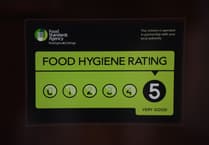Chlamydia remains the most frequently diagnosed sexually transmitted infection. Young people are most affected — especially those aged 15 to 24 years. It often has no symptoms. Going undetected and untreated may lead to serious health complications. It also means it is more likely to be passed on unknowingly. As many as one in 12 young people tested are found to have the infection.
Bude’s Boots store is among six pharmacies across the county to take part in a three-month trial to target women aged 15 to 24. Pharmacies were chosen to take part because they are easy for young people to get to due to their locations and opening hours. Also many offer C-CARD — the free condom scheme — and emergency contraception, commonly known as the morning after pill. Chlamydia tests will be offered to young women who are accessing emergency contraception where there is a greater risk of chlamydia infection.
Lindsay Knight, chlamydia screening co-ordinator for the Royal Cornwall Hospital Trust, said: “We hope that young women will choose to take this opportunity to do something really valuable for their sexual health and wellbeing. Chlamydia often has no symptoms and, left untreated, can cause problems including pelvic inflammatory disease, ectopic pregnancy and infertility. The only way to find out if you have chlamydia is to do a test, and this self–taken test is easy, free and confidential. Our young people friendly team will support and advise anyone who receives a positive result, and the treatment is also easy, effective and free.”
Cornwall Councillor Andrew Wallis, cabinet member for children’s services, said: “We hope that by offering chlamydia testing at a time when there may be an increased risk of infection, may help young women consider the benefits of testing and make it more convenient for them. Reviewing and evaluating this pilot will help us to further understand what young people in Cornwall need to improve their sexual health.”
Young people who are sexually active should test for chlamydia annually and with every change of partner. Chlamydia tests are currently available at many health services including GP services, contraceptive and sexual health services such as Brook and Royal Cornwall Hospital Trusts Sexual Health Hub, and online at www.freetest.me
Condoms, used correctly and consistently, can help prevent chlamydia. Condoms are available for free through the C-CARD scheme and more information for young people can be found on Savvy Kernow.
To contact a sexual health service, or for more information on sexual health, STI’s and the full range of services available in Cornwall, visit SHAC at www.cornwallshac.org.uk

.png?width=209&height=140&crop=209:145,smart&quality=75)


Comments
This article has no comments yet. Be the first to leave a comment.